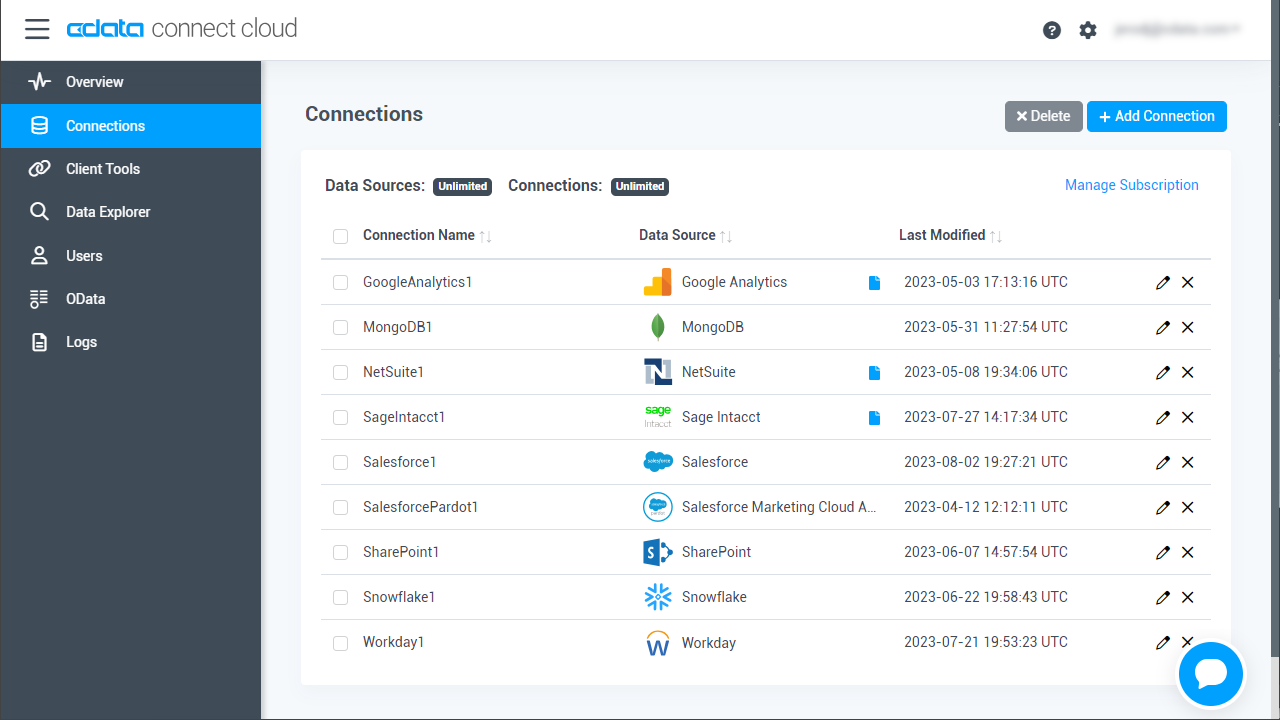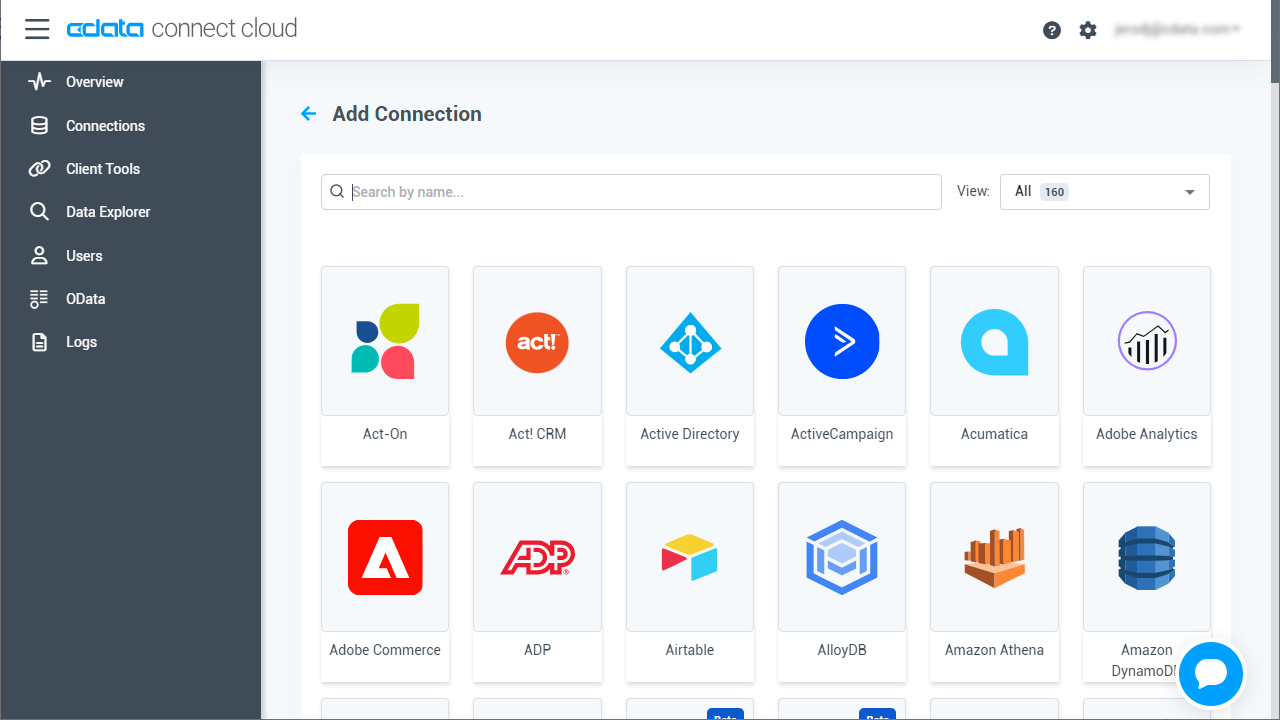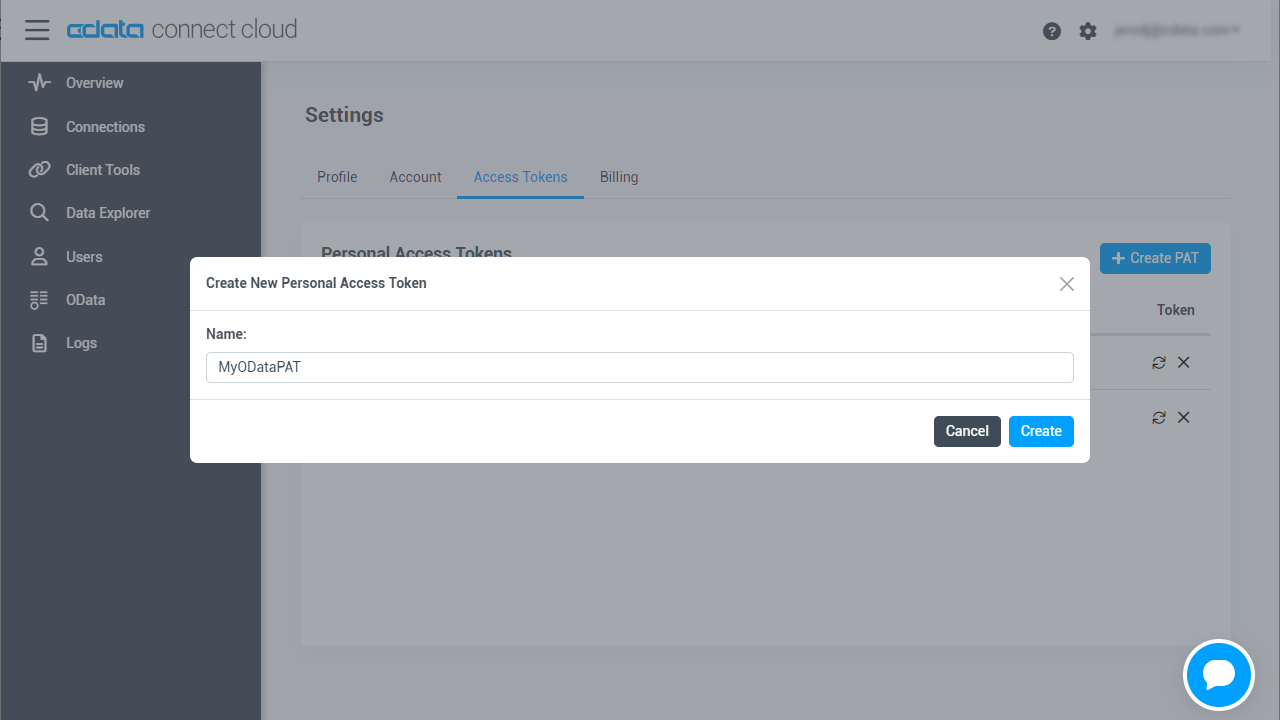Discover how a bimodal integration strategy can address the major data management challenges facing your organization today.
Get the Report →Query BigCommerce Data as a SQL Server Database in Node.js
Execute SQL Server queries against BigCommerce data from Node.js.
You can use CData Connect Cloud to query BigCommerce data through a SQL Server interface. Follow the procedure below to create a virtual database for BigCommerce in Connect Cloud and start querying using Node.js.
CData Connect Cloud provides a pure MySQL, cloud-to-cloud interface for BigCommerce, allowing you to easily query live BigCommerce data in Node.js — without replicating the data to a natively supported database. As you query data in Node.js, CData Connect Cloud pushes all supported SQL operations (filters, JOINs, etc) directly to BigCommerce, leveraging server-side processing to quickly return BigCommerce data.
Configure BigCommerce Connectivity for NodeJS
Connectivity to BigCommerce from NodeJS is made possible through CData Connect Cloud. To work with BigCommerce data from NodeJS, we start by creating and configuring a BigCommerce connection.
- Log into Connect Cloud, click Connections and click Add Connection
![Adding a Connection]()
- Select "BigCommerce" from the Add Connection panel
![Selecting a data source]()
-
Enter the necessary authentication properties to connect to BigCommerce.
BigCommerce authentication is based on the standard OAuth flow. To authenticate, you must initially create an app via the Big Commerce developer platform where you can obtain an OAuthClientId, OAuthClientSecret, and CallbackURL. These three parameters will be set as connection properties to your driver.
Additionally, in order to connect to your BigCommerce Store, you will need your StoreId. To find your Store Id please follow these steps:
- Log in to your BigCommerce account.
- From the Home Page, select Advanced Settings > API Accounts.
- Click Create API Account.
- A text box named API Path will appear on your screen.
- Inside you can see a URL of the following structure: https://api.bigcommerce.com/stores/{Store Id}/v3.
- As demonstrated above, your Store Id will be between the 'stores/' and '/v3' path paramters.
- Once you have retrieved your Store Id you can either click Cancel or proceed in creating an API Account in case you do not have one already.
![Configuring a connection (Salesforce is shown)]()
- Click Create & Test
- Navigate to the Permissions tab in the Add BigCommerce Connection page and update the User-based permissions.
![Updating permissions]()
Add a Personal Access Token
If you are connecting from a service, application, platform, or framework that does not support OAuth authentication, you can create a Personal Access Token (PAT) to use for authentication. Best practices would dictate that you create a separate PAT for each service, to maintain granularity of access.
- Click on your username at the top right of the Connect Cloud app and click User Profile.
- On the User Profile page, scroll down to the Personal Access Tokens section and click Create PAT.
- Give your PAT a name and click Create.
![Creating a new PAT]()
- The personal access token is only visible at creation, so be sure to copy it and store it securely for future use.
With the connection configured, you are ready to connect to BigCommerce data from Node.js.
Query BigCommerce from Node.js
The following example shows how to define a connection and execute queries to BigCommerce with the SQL Server module. You will need the following information:
- server: tds.cdata.com
- port: 14333
- user: a Connect Cloud user (e.g. [email protected])
- password: the PAT for the above user
- database: The connection you configured for BigCommerce (BigCommerce1)
Connect to BigCommerce data and start executing queries with the code below:
var sql = require('mssql')
var config = {
server: 'tds.cdata.com',
port: 14333,
user: '[email protected]', //update me
password: 'CONNECT_USER_PAT', //update me
options: {
encrypt: true,
database: 'BigCommerce1'
}
}
sql.connect(config, err => {
if(err){
throw err ;
}
new sql.Request().query('SELECT * FROM Customers', (err, result) => {
console.dir(result)
})
});
sql.on('error', err => {
console.log("SQL Error: " ,err);
})










